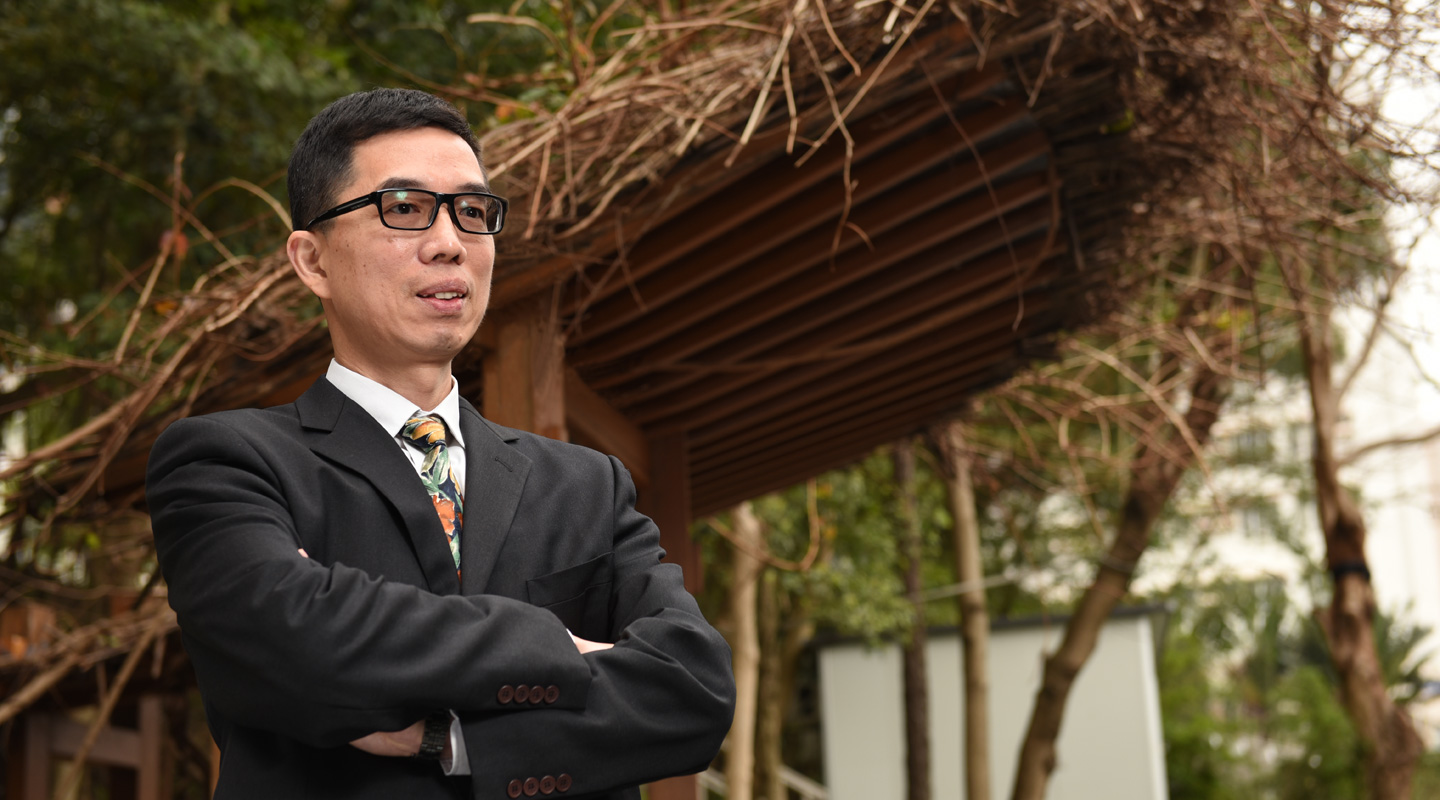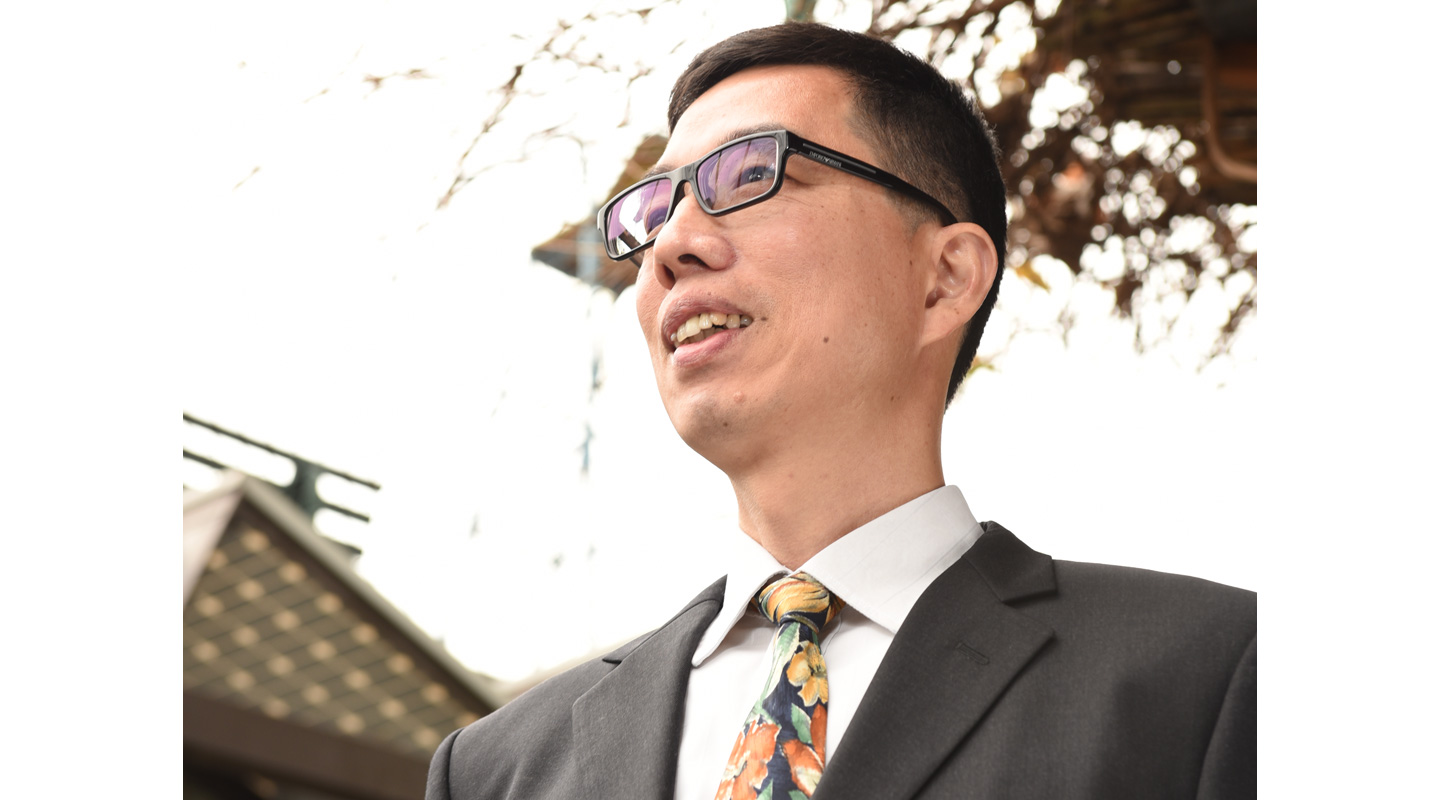Dear readers, With the launch of e-newsletter CUHK in Focus, CUHKUPDates has retired and this site will no longer be updated. To stay abreast of the University’s latest news, please go to https://focus.cuhk.edu.hk. Thank you.
Managing a Green Campus
Director of Estates Management Mr. Edmond Lam talks about the challenge and strategy in heading the largest service unit of CUHK.

Mr. Edmond Lam
Director of Estates Management
How long have you been with CUHK? Your pre-CUHK experience?
I joined CUHK on 1 September 2015. I had spent over 10 years in project management in Hong Kong and Singapore. The building projects I was involved in included private and public housing projects, hotels, factory buildings and hospital extension. I had also worked for the Construction Industry Council for about 20 years, responsible for the skill evaluation and technical training of construction workers. Besides curriculum planning and evaluation, my portfolio also included the repair and maintenance, property management and building development of the training centre and the outdoor training grounds.
What are the challenges in managing such an expansive campus?
The Estates Management Office (EMO) has over 400 dutiful and hardworking staff members. The biggest challenge is how to maintain this professional team, encourage each member to contribute his/her best while collaborating with each other as a team to build a better and greener campus. Our office is mainly responsible for buildings and grounds maintenance, landscaping, housekeeping and building management. We always strive to provide our services in the most cost-effective and reliable ways so as to facilitate the teaching and research activities on campus.
There are as many types of our work as there are trees on campus. Buildings and grounds maintenance requires constant attention to the conditions of the facilities and the structural parts in buildings, as well as knowledge of the relevant laws and regulations. Regular checkups need to be carried out, and speedy attention and solution when a problem is found. Landscaping has a direct bearing on the green outlook of campus. Housekeeping and building management ensure campus hygiene. EMO also supports the University’s initiatives on sustainability, particularly in energy consumption and waste reduction.
How much time have you spent on the campus? Been to every building already?
I have covered the campus many times, but it’s well-nigh impossible to have a thorough look at each of the over 160 buildings thereon. I think it's more important to spend time to know the teams that take care of the buildings. In the first three months, I visited every part of campus and talked to the EMO colleagues there. I tried to understand how the frontline staff work and listened to their views, difficulties and needs. Although not all of their views can be put in action, I still believe that such exchanges would bring about mutual understanding. I encourage my staff to voice their opinions so that a harmonious work culture can be built through mutual respect.

How do you ensure your frontline staff do their job well?
The EMO has been accredited with the ISO9001, ISO14001 and OHSAS18001 standards of integrated management system. We have well established internal training specifications, and every team will arrange appropriate training for their frontline staff to keep them updated on their skills and knowledge. Our staff can also attend talks and courses on the outside to keep abreast of the latest laws and regulations.
How are digitization and automation applied to estates management?
EMO has been using the Centralized Maintenance Management System, a large-scale database that has job request, approval, monitoring, reporting, analysis and review functions all in one. Once a service request is received it will be entered into the system. Our staff will then perform on-site inspection and fill out the appropriate form for approval. Once approval is given, the work can begin, and when it is over the system will record the completion and the resources used. The management can keep track of the progress and understand the service needs. They can also examine the completed workload of each team from the monthly reports for better resource deployment.
The EMO is also equipped with the Building Management System which is connected to over 30 buildings with central air-conditioning. Buildings completed in the last few years such as the Yasumoto International Academic Park and the Cheng Yu Tung Building are even better equipped. The workings of the elevators, air-conditioning cooling tower, lighting, fire service system and water pumps in them can be managed centrally. The constant updating of information is a big help to property management.
How do you spend your spare time?
In my spare time I jog in the stadium and do some stretching exercises. I also love hiking and count myself fortunate to have known some hiking companions. The four famous trails in Hong Kong──the Lantau Trail, the MacLehose Trail, the Wilson Trail and the Hong Kong Trail──are our favourites. We would be treated to the beautiful scenery along the way as well as having interesting conversations among ourselves.
This article was originally published in No. 474, Newsletter in Mar 2016.